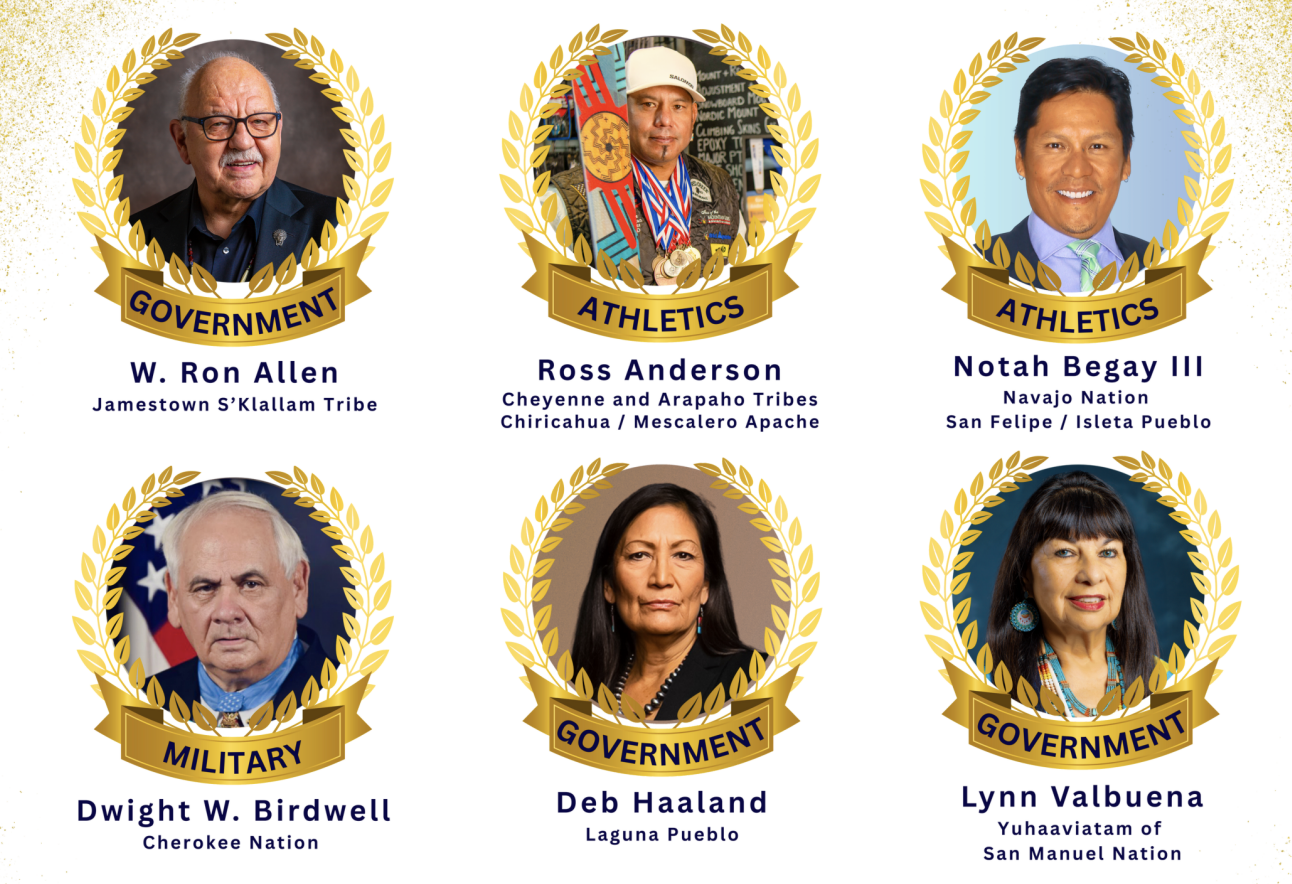
- Details
- By Kaili Berg
- W. Ron Allen (Jamestown S’Klallam Tribe): For decades, Allen has been a strong voice for tribal sovereignty and self-governance. As Chairman of the Jamestown S’Klallam Tribe, he has kept a close watch on federal policy to ensure tribes’ treaty rights and self-determination are upheld, working tirelessly to advance Native interests in Washington, D.C.
- Ross Anderson (Cheyenne and Arapaho Tribes; Mescalero/Chiricahua Apache): Anderson made history in the world of skiing, becoming the first Native American to place in the Pro Speed Skiing World Championships in 2001. He later set a Western Hemisphere speed record of 154.06 mph, earning recognition as the fastest skier in American history. In 2024, he became the first Native person inducted into the U.S. Ski and Snowboard Hall of Fame and multiple other state halls of fame.
- Notah Begay III (Navajo Nation; San Felipe/Isleta Pueblo): A standout PGA golfer and longtime advocate for youth, Begay has made his mark both on and off the course. Alongside representing the U.S. in prestigious tournaments, he founded the NB3 Foundation and Junior Golf National Championship, opening doors for young Native athletes nationwide.
- Dwight W. Birdwell (Cherokee Nation): A Vietnam War hero, Birdwell received the Medal of Honor in 2022 for his bravery during the Tet Offensive in 1968. His courage and selflessness under fire remain a powerful example of Native service and sacrifice
- Deb Haaland (Laguna Pueblo): Haaland made history in 2021 as the first Native American to serve as U.S. Secretary of the Interior. Her career has been marked by a deep commitment to environmental justice, Native sovereignty, and representation. Before joining the federal government, she was a business owner, tribal administrator, and the first woman elected to the Laguna Development Corporation Board.
- Lynn Valbuena (Yuhaaviatam of San Manuel Nation): For half a century, Valbuena has been a pillar of tribal governance and advocacy. Now serving her sixth term as Chairwoman of the San Manuel Band of Mission Indians, she continues to lead regionally and nationally through the Tribal Alliance of Sovereign Indian Nations, mentoring the next generation of women leaders.
More Stories Like This
Native News Weekly (August 25, 2024): D.C. BriefsUS Presidents in Their Own Words Concerning American Indians
Native News Weekly (February 15, 2026): D.C. Briefs
DHS Secretary Noem Tells Tribes ICE Does Not Target Native Americans
Native News Online Marks 15 Years of Warrior Journalism
Help us defend tribal sovereignty.
At Native News Online, our mission is rooted in telling the stories that strengthen sovereignty and uplift Indigenous voices — not just at year’s end, but every single day.
Because of your generosity last year, we were able to keep our reporters on the ground in tribal communities, at national gatherings and in the halls of Congress — covering the issues that matter most to Indian Country: sovereignty, culture, education, health and economic opportunity.
That support sustained us through a tough year in 2025. Now, as we look to the year ahead, we need your help right now to ensure warrior journalism remains strong — reporting that defends tribal sovereignty, amplifies Native truth, and holds power accountable.
 The stakes couldn't be higher. Your support keeps Native voices heard, Native stories told and Native sovereignty defended.
The stakes couldn't be higher. Your support keeps Native voices heard, Native stories told and Native sovereignty defended.
Stand with Warrior Journalism today.
Levi Rickert (Potawatomi), Editor & Publisher


